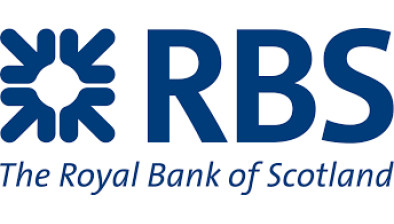RBS: Scottish jobseekers have ‘tougher time’ finding permanent positions in October
Job seekers in Scotland had a tougher time finding permanent positions in October, according to the latest Royal Bank of Scotland report on jobs.

October data highlighted a further reduction in the number of permanent staff appointments across Scotland, with the decline quickening to a moderate pace.
Temporary billings remained a bright spot, however, with growth the most marked since late-2018, amid reports of firmer demand for short-term staff and lingering uncertainty around COVID-19. Indeed, survey data signalled the first rise in temporary staff vacancies since February, which contrasted with another marked fall in permanent vacancies. Nonetheless, the availability of both permanent and temporary candidates continued to rise sharply amongst reports of further redundancies, although the rates of increase did ease from September.
Recruiters across Scotland signalled a ninth successive monthly fall in the number of permanent staff appointments during October. The decline accelerated since September, although it remained moderate overall and much slower than those seen at the height of lockdown measures in the spring. Respondents attributed the latest drop in placements to firms temporarily suspending hiring amid the COVID-19 pandemic.
Permanent placements also fell at the UK level in October, although the decline was slightly slower than in Scotland.
October data highlighted a back-to-back monthly rise in temporary billings across Scotland, with growth the quickest since late-2018. According to panellists, companies, particularly in the manufacturing sector, had resumed hiring short-term staff as lockdown restrictions were eased. Furthermore, the rate of increase in Scotland outstripped that seen at the UK level during October.
October data highlighted a further increase in the availability of permanent candidates across Scotland, stretching the current sequence of expansion to five months. Panellists reported that redundancies amid the COVID-19 pandemic resulted in a greater number of job seekers. The rate of increase eased noticeably from September, although it was still sharp overall.
Recruitment consultants in Scotland signalled a further rise in the supply of temporary staff during October. As was the case for permanent candidates, respondents linked the latest increase with a rise in the number of available candidates due to redundancies and lay-offs amid the coronavirus pandemic. The rate of increase was the slowest since April, albeit still sharp overall.
A seventh successive monthly reduction in permanent starting salaries across Scotland was recorded in October. Moreover, the rate of decline accelerated on the month and was sharp overall.
Adjusted for seasonal factors, the Temporary Wages Index climbed above the neutral 50.0 threshold in October to signal the first increase in average hourly pay rates for short-term staff across Scotland since March. The rate of inflation was only mild overall, and subdued in the context of the series history, however.
October data highlighted a further drop in permanent vacancies across Scotland, extending the current sequence of contraction to eight months. The rate of decline was the slowest since March, but still marked overall.
Recruiters in Scotland signalled the first increase in temporary vacancies for eight months during October, with the rate of growth modest overall.
Sebastian Burnside, chief economist at RBS, said: “Jobseekers had a tougher time finding permanent positions in October as economic growth momentum began to fade as the summer came to an end. Firms did manage to fill more temporary vacancies, perhaps reflecting their understandable uncertainty about the resilience of demand.
“But with stricter COVID-19 restrictions introduced across much of the central belt and a new tiering system we don’t expect the bright spot of more temporary vacancies to last for long. November will bring a new lockdown for England which will dampen trade in general but also hit the tourism economy particularly hard. Firms have shown great ingenuity to adapt to operating in the Covid economy this year; this winter looks to be setting yet another test.”






